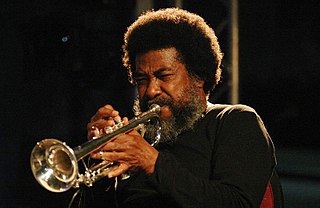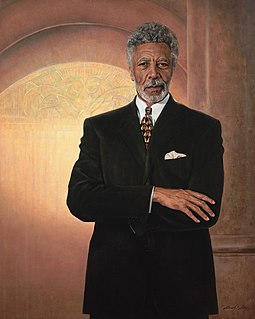A Quote by Wadada Leo Smith
When you live in the South, you're constantly part of the civil rights movement.
Related Quotes
In less than a century we experienced great movement. The youth movement! The labor movement! The civil rights movement! The peace movement! The solidarity movement! The women's movement! The disability movement! The disarmament movement! The gay rights movement! The environmental movement! Movement! Transformation! Is there any reason to believe we are done?
The gay rights movement of recent years has been an inspiring victory for humanity and it is in the tradition of the civil rights movement when I was a young boy in the South, the women's suffrage movement when my mother was a young woman in Tennessee, the abolition movement much farther back, and the anti-apartheid movement when I was in the House of Representatives. All of these movements have one thing in common: the opposition to progress was rooted in an outdated understanding of morality.
You've got the whole civil rights movements emanating from the south, you've got the music that came out of the south that is the core of our current music, so for me that thinking comes out of having Dukes of Hazzard thrown in your face: that the south is a bunch of twangy people that I can't understand. So this is, hopefully, part of the movement to restore the south to its proper and rightful place in our nation... which is huge and pervasive. It's not about Texas - I'm not saying Texas doesn't have it's own unique history - but the south has this at its core.
In the South, prior to the Civil Rights movement and the 1964 Civil Rights Act, democracy was the rule. The majority of people were white, and the white majority had little or no respect for any rights which the black minority had relative to property, or even to their own lives. The majority - the mob and occasionally the lynch mob - ruled.
Yes, it is hard out there. But hard is relative. I come from a middle-class family, my parents are academics. I was born after the Civil Rights movement, I was a toddler during the women's movement, I live in the United States of America, all of which means I am allowed to own my freedom, my rights, my voice and my uterus.



































